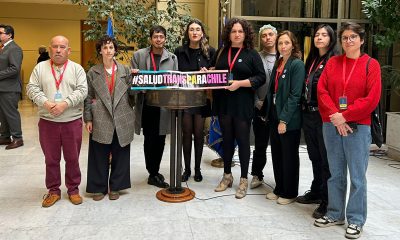South America
Chilean government says it will strengthen anti-discrimination law
Gabriel Boric’s administration to create equality council
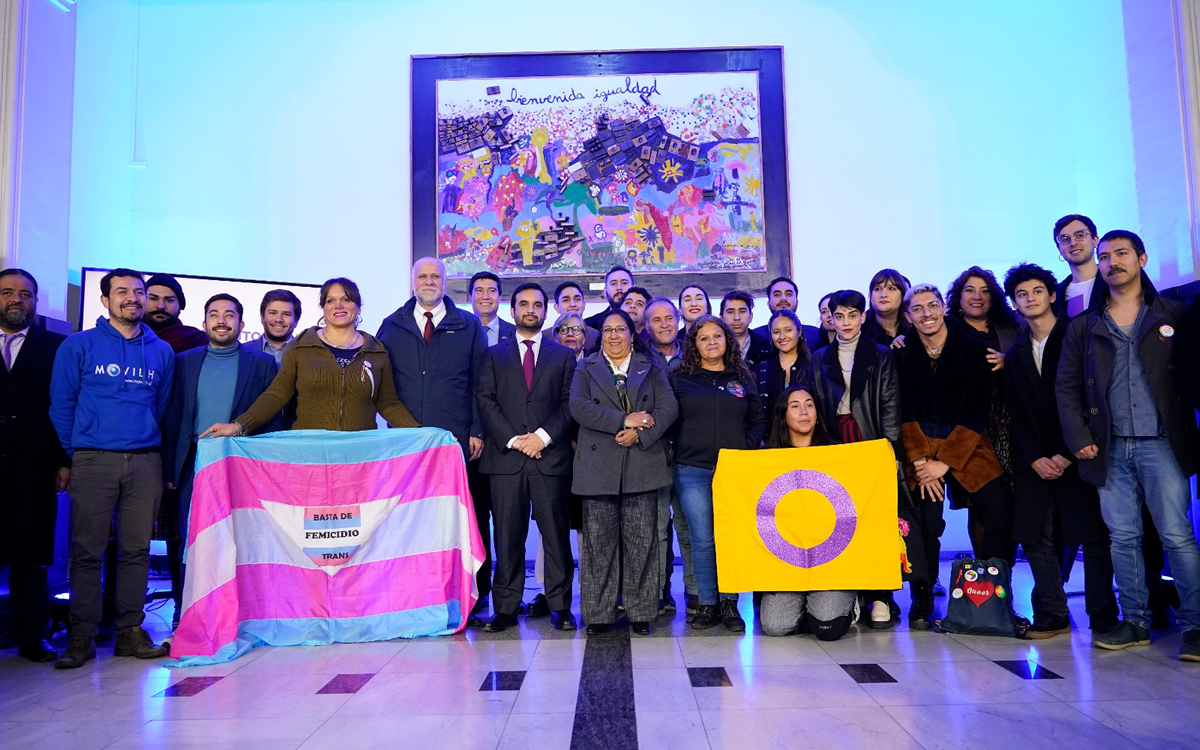
President Gabriel Boric’s administration has announced it intends to strengthen Chile’s anti-discrimination law that took effect in 2012.
Law 20,609, named after Daniel Zamudio, a gay man who was murdered in Santiago, the Chilean capital, in 2012, marked an important milestone in the fight against discrimination.
Boric’s government is also reportedly going to create an equality and nondiscrimination council, which will provide an institutional framework to fight for LGBTQ and intersex people and other vulnerable groups.
According to the Movement for Homosexual Integration and Liberation (Movilh), the Latin American country’s main queer organization, hate crimes doubled over the last year. And for this reason, Movilh for more than a decade has been demanding that Chilean authorities improve the Zamudio Law to prevent violence against LGBTQ and intersex people.
Last month’s Pride march that Movilh organized drew more than 180,000 people who demanded improvements to the Zamudio Law.
“We are very happy that our demands were heard and that this announcement is made today in the company of Jaqueline Vera and Iván Zamudio, Daniel’s mother and father,” said Movilh President Gonzalo Velásquez. “We must not forget that the Anti-Discrimination Law accelerated its approval after the brutal homophobic attack that took the life of Daniel Zamudio in 2012. Along with him, 63 other people have been murdered in Chile because of their sexual orientation or gender identity. It is to them … and to so many victims of other forms of discrimination that we must dedicate this announcement of the strengthening of the law.”
Since Boric since he took office in March 2022, he has commissioned the Women and Gender Equality Ministry to work with Chilean LGBTQ and intersex rights organizations to implement his campaign promises.
State Secretariat Minister Antonia Orellana told the Washington Blade that “first I would like to highlight the work of the governmental roundtable for the rights of LGBTIQA+ people that the Ministry of Women and Gender Equality carried out together with the Sociocultural Coordination of the Presidency in 2022.”
According to her, this work “is part of the actions that we have been carrying out to respond to the demands of gender diversity and dissidence gathered at the table, but above all to move towards the protection of people and respect for their identity, freedom and dignity.”
“This instance not only allowed us to listen and learn about the particular needs that arise from this experience; receiving them in La Moneda (the Chilean Presidential Palace) was also a sign, a milestone and a message that is consistent with what is commemorated on Pride Day, which is the need to make this diversity visible in search of recognition and respect for the identity and dignity of people, whether they are transgender, lesbian, gay, nonbinary,” said Orellana.
“Today, as the Ministry of Women and Gender Equality, we are integrating the LGBTIQA+ community from the possibilities that our institutional framework gives us today,” she emphasized. “All ministries are committed to advancing LGBTIQA+ matters and our Ministry is leading the actions that allow us to push that agenda.”
Fundación Iguales Executive Director Maria José Cumplido told the Blade from Concepción that “we believe it is a very good announcement to create an anti-discrimination institution and improve the Zamudio Law. We are happy that the government has listened to us.”
“With Movilh we requested many times that the Justice Ministry should host this institution through the Undersecretary of Human Rights. That is the competent state portfolio,” added Cumplido.
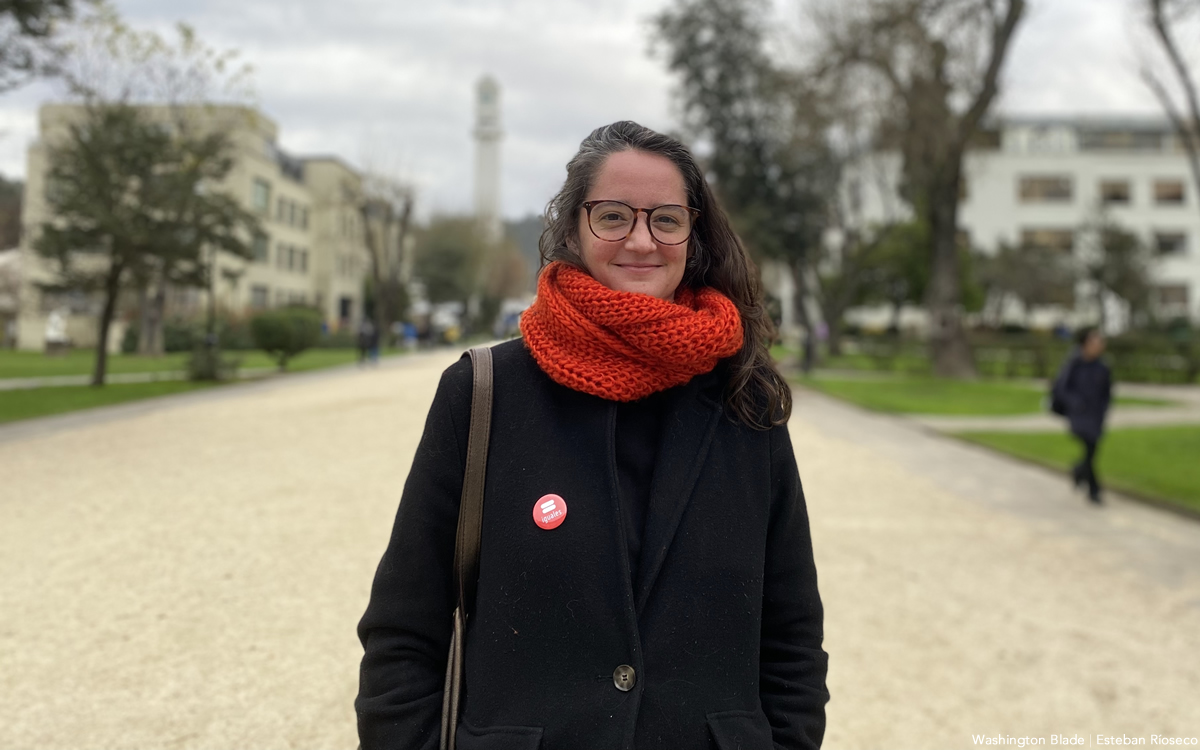
Orellana further stressed to the Blade that “this new institutionalism is added to other actions that we have been carrying out as a government and that have to do with improving the daily experience of diversities and dissidences, among them the restitution of a public property in the Aysén Region to build the first House of Diversities and Dissidences, which can attend and gather people from the community.” She said it will also include “the incorporation of questions on gender identity and sexual orientation in the CASEN (a survey used to create public policy) because it is important to make diversities and dissidences visible, to know how they live, what needs they have, to know and recognize them so that the state can effectively reach all people; or the elimination of discriminatory and stigmatizing practices in health care, including reconversion therapies, through new guidelines of the Health Ministry.”
“We have other commitments also in labor matters, to protect the right to work of trans people,” said Orellana. “There are still many actions to be taken in this work, but we count on the will and commitment of all the ministries.”
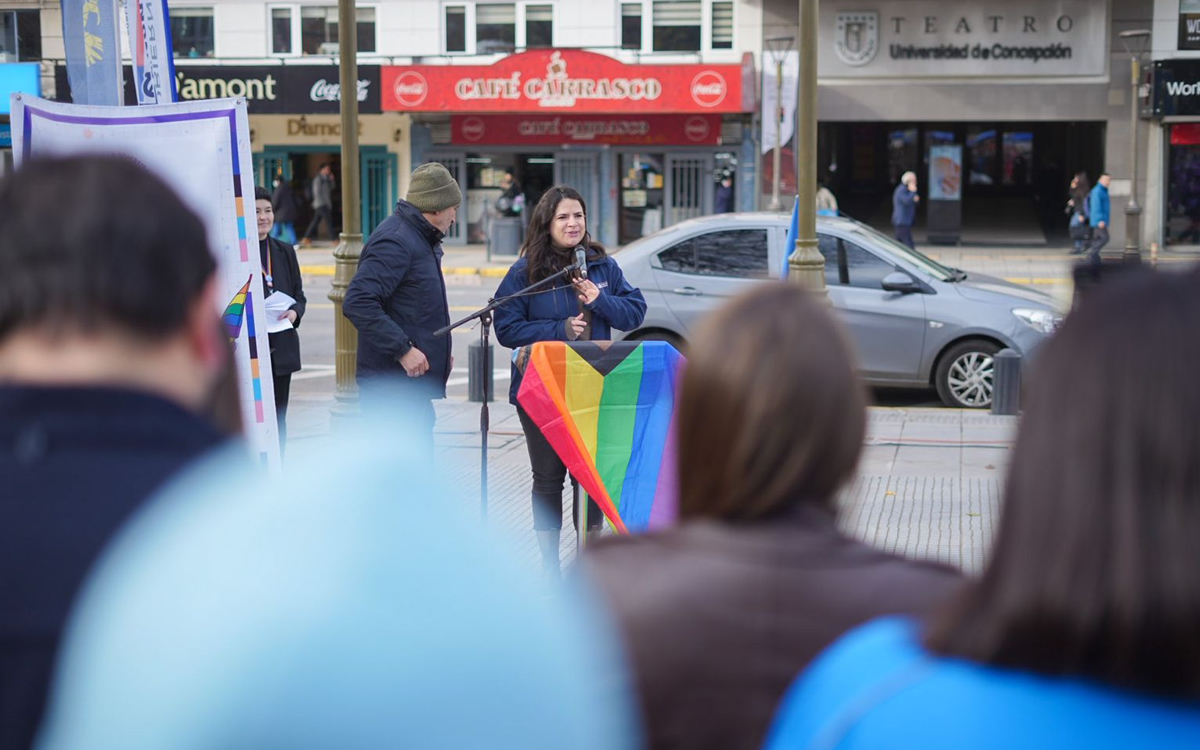
This new institutional framework and proposed reforms of the Zamudio Law depend upon Congress. Boric’s government has therefore made them a legislative priority.
Colombia
Colombia avanza hacia la igualdad para personas trans
Fue aprobado en Comisión Primera de la Cámara la Ley Integral Trans

En un hecho histórico para los derechos humanos en Colombia, la Comisión Primera de la Cámara de Representantes aprobó en primer debate el Proyecto de Ley 122 de 2024, conocido como la Ley Integral Trans, que busca garantizar la igualdad efectiva de las personas con identidades de género diversas en el país. Esta iniciativa, impulsada por más de cien organizaciones sociales defensoras de los derechos LGBTQ, congresistas de la comisión por la Diversidad y personas trans, representa un paso decisivo hacia el reconocimiento pleno de derechos para esta población históricamente marginada.
La Ley Integral Trans propone un marco normativo robusto para enfrentar la discriminación y promover la inclusión. Entre sus principales ejes se destacan el acceso a servicios de salud con enfoque diferencial, el reconocimiento de la identidad de género en todos los ámbitos de la vida, la creación de programas de empleo y educación para personas trans, así como medidas para garantizar el acceso a la justicia y la protección frente a violencias basadas en prejuicios.
Detractores hablan de ‘imposición ideológica
Sin embargo, el avance del proyecto no ha estado exento de polémicas. Algunos sectores conservadores han señalado que la iniciativa representa una “imposición ideológica”. La senadora y precandidata presidencial María Fernanda Cabal anunció públicamente que se opondrá al proyecto de Ley Integral Trans cuando llegue al Senado, argumentando que “todas las personas deben ser tratadas por igual” y que esta propuesta vulneraría un principio constitucional. Estas declaraciones anticipan un debate intenso en las próximas etapas legislativas.
El proyecto también establecelineamientos claros para que las instituciones públicas respeten el nombre y el género con los que las personas trans se identifican, en concordancia con su identidad de género, y contempla procesos de formación y sensibilización en entidades estatales. Además, impulsa políticas públicas en contextos clave como el trabajo, la educación, la cultura y el deporte, promoviendo una vida libre de discriminación y con garantías plenas de participación.
¿Qué sigue para que sea ley?
La Ley aún debe superar varios debates legislativos, incluyendo la plenaria en la Cámara y luego el paso al Senado; pero la sola aprobación en Comisión Primera ya constituye un hito en la lucha por la igualdad y la dignidad de las personas trans en Colombia. En un país donde esta población enfrenta altos niveles de exclusión, violencia y barreras estructurales, este avance legislativo renueva la esperanza de una transformación real.
Desde www.orgullolgbt.co, celebramos este logro, invitamos a unirnos en esta causa impulsándola en los círculos a los que tengamos acceso y reiteramos nuestro compromiso con la visibilidad, los derechos y la vida digna de las personas trans. La #LeyIntegralTrans bautizada “Ley Sara Millerey” en honor de la mujer trans recientemente asesinada en Bello, Antioquia (ver más aquí); no es solo una propuesta normativa: es un acto de justicia que busca asegurar condiciones reales para que todas las personas puedan vivir con libertad, seguridad y respeto por su identidad.
Colombia
Claudia López running for president of Colombia
Former Bogotá mayor married to Sen. Angélica Lozano
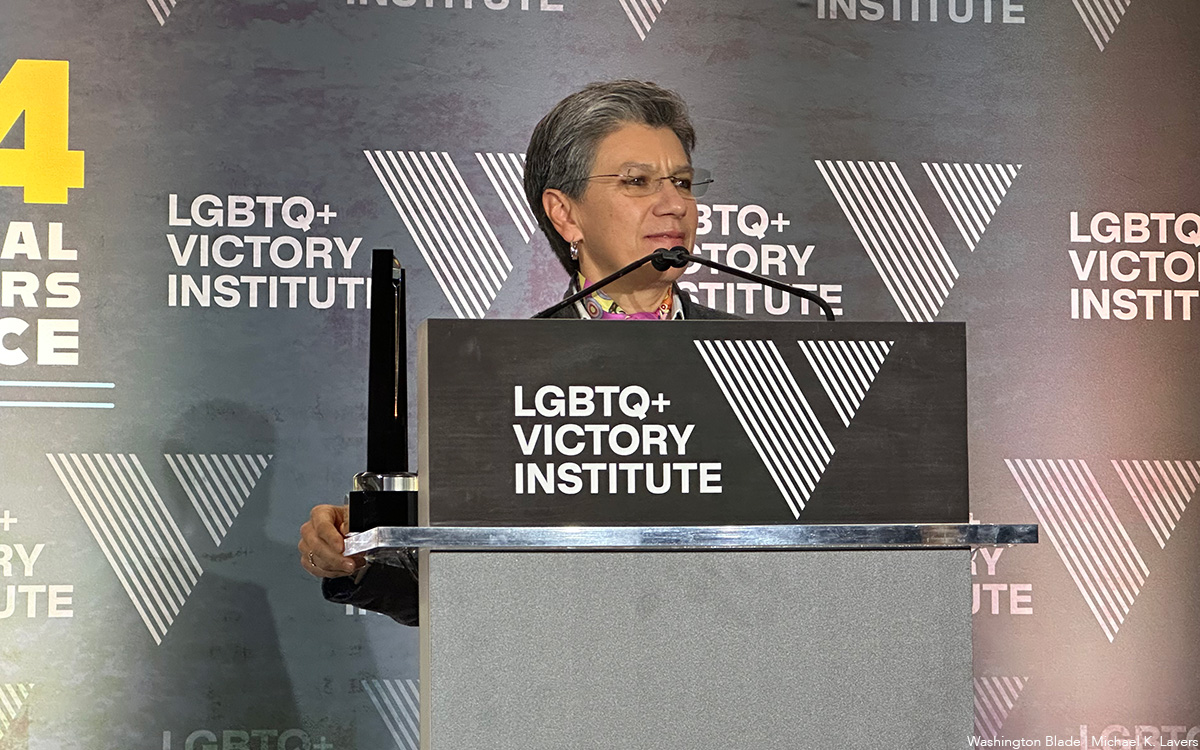
Former Bogotá Mayor Claudia López has announced she is running for president of Colombia.
“We begin today and we will win in a year,” she said in a social media post on June 3.
View this post on Instagram
López, 55, was a student protest movement leader, journalist, and political scientist before she entered politics. López returned to Colombia in 2013 after she earned her PhD in political science at Columbia University.
López in a speech she gave last December after the LGBTQ+ Victory Institute honored her at its annual International LGBTQ Leaders Conference in D.C. noted Juan Francisco “Kiko” Gomez, a former governor of La Guajíra, a department in northern Colombia, threatened to assassinate her because she wrote about his ties to criminal gangs.
A Bogotá judge in 2017 convicted Gómez of ordering members of a paramilitary group to kill former Barrancas Mayor Yandra Brito, her husband, and bodyguard and sentenced him to 55 years in prison.
López in 2014 returned to Colombia, and ran for the country’s Senate as a member of the center-left Green Alliance party after she recovered from breast cancer. López won after a 10-week campaign that cost $80,000.
López in 2018 was her party’s candidate to succeed then-President Juan Manuel Santos when he left office. López in 2019 became the first woman and first lesbian elected mayor of Bogotá, the Colombian capital and the country’s largest city.
López took office on Jan. 1, 2020, less than a month after she married her wife, Colombian Sen. Angélica Lozano. (López was not out when she was elected to the Senate.) López’s mayorship ended on Dec. 31, 2023. She was a 2024 Harvard University Advance Leadership Initiative fellow.
The first-round of Colombia’s presidential election will take place on May 31, 2026.
The country’s 1991 constitution prevents current President Gustavo Petro from seeking re-election.
López declared her candidacy four days before a gunman shot Sen. Miguel Uribe, a member of the opposition Democratic Center party who is seen as a probable presidential candidate, in the head during a rally in Bogotá’s Fontibón neighborhood.
She quickly condemned the shooting. López during an interview with the Washington Blade after the Victory Institute honored her called for an end to polarization in Colombia.
“We need to listen to each other again, we need to have a coffee with each other again, we need to touch each other’s skin,” she said.
López would be Colombia’s first female president if she wins. López would also become the third openly lesbian woman elected head of government — Jóhanna Sigurðardóttir was Iceland’s prime minister from 2009-2013 and Ana Brnabić was Serbia’s prime minister from 2017-2024.
Chile
Gay pharmacist’s murder sparks outrage in Chile
Francisco Albornoz’s body found in remote ravine on June 4

The latest revelations about the tragic death of Francisco Albornoz, a 21-year-old gay pharmacist whose body was found on June 4 in a remote ravine in the O’Higgins region 12 days after he disappeared, has left Chile’s LGBTQ community shocked.
The crime, which was initially surrounded by uncertainty and contradictory theories, has taken a darker and more shocking turn after prosecutors charged Christian González, an Ecuadorian doctor, and José Miguel Baeza, a Chilean chef, in connection with Albornoz’s murder. González and Baeza are in custody while authorities continue to investigate the case.
The Chilean Public Prosecutor’s Office has pointed to a premeditated “criminal plan” to murder Albornoz.
Rossana Folli, the prosecutor who is in charge of the case, says Albornoz died as a a result of traumatic encephalopathy after receiving multiple blows to the head inside an apartment in Ñuñoa, which is just outside of Santiago, the Chilean capital, early on May 24. The Prosecutor’s Office has categorically ruled out that Albornoz died of a drug overdose, as initial reports suggested.
“The fact that motivates and leads to the unfortunate death of Francisco is part of a criminal plan of the two defendants, aimed at ensuring his death and guaranteeing total impunity,” Folli told the court. “The seriousness of the facts led the judge to decree preventive detention for both defendants on the grounds that their freedom represents a danger to public safety.”
Prosecutors during a June 7 hearing that lasted almost eight hours presented conservations from the suspects’ cell phones that they say showed they planned the murder in advance.
“Here we already have one (for Albornoz.) If you bring chloroform, drugs, marijuana, etc.,” read one of the messages.
Security cameras captured the three men entering the apartment where the murder took place together.
Hours later, one of the suspects left with a suitcase and a shopping cart to transport Albornoz’s body, which had been wrapped in a sleeping bag. The route they followed to dispose of the body included a stop to buy drinks, potato chips, gloves, and a rope with which they finally descended a ravine to hide it.
Advocacy groups demand authorities investigate murder as hate crime
Although the Public Prosecutor’s Office has not yet officially classified the murder as a hate crime, LGBTQ organizations are already demanding authorities investigate this angle. Human rights groups have raised concerns over patterns of violence that affect queer people in Chile.
The Zamudio Law and other anti-discrimination laws exist. Activists, however, maintain crimes motivated by a person’s sexual orientation or gender identity are not properly prosecuted.
“This is not just a homicide, it is the cruelest expression of a society that still allows the dehumanization of LGBTQ+ people,” said a statement from Fundación Iguales, one of Chile’s main LGBTQ organizations. “We demand truth, justice, and guarantees of non-repetition.”
The Movement for Homosexual Integration and Liberation (Movilh), meanwhile, indicated that “since the first day the family contacted us, we have been in conversations with the Prosecutor’s Office so that this fatal outcome is thoroughly investigated, including the possible existence of homophobic motivations or components.”
The investigation into Albornoz’s murder continues, and the court has imposed a 90-day deadline for authorities to complete it.





